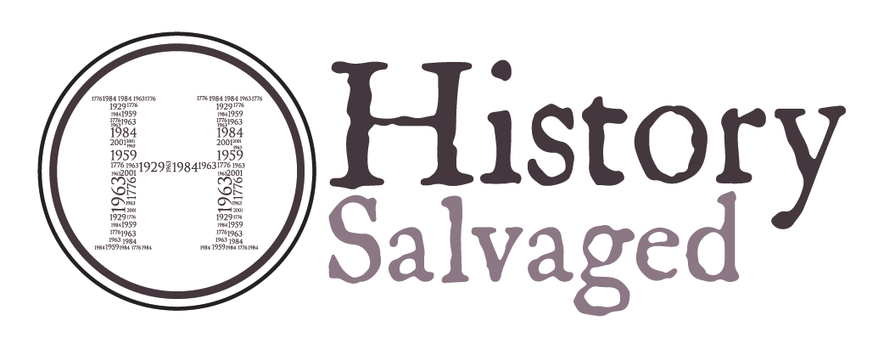On the day before Thanksgiving 1996, General Services Administration carpenter Richard Lyons was conducting a final review of a decrepit building at 437 Seventh Street, Northwest, that had recently fallen into government possession and was now set for demolition. Coming in from the cold rain, he entered the dusty old building alone. On the first floor (which was once a shoe store), he checked for infrastructure damage, trash, and whether anybody had made it their temporary home. Then, he moved to the second floor and did a similar sweep. He moved to the third floor. “There were no lights… it was dark,” Lyons tells Washingtonian, “Then, I heard this noise, but saw nothing.” Lyons heard a noise again, so he walked back and forth, stopping at the window. “I was at the window and it felt like somebody tapped me on the shoulder… when I turned around, I spotted an envelope between the ceiling and the wall.”
He got out a ladder and reached for it. The envelope was addressed to an “Edward Shaw, Washington City.” Curious, he pulled himself through a small hole leading to the attic. That’s where he found an assortment of artifacts—utensils, clothing, Civil War-era newspapers, a bayonet and one small sign written in gold and black lettering. It read “Missing Soldiers. Office. 3rd. Story. Room 9. Miss Clara Barton.”
The sign Lyons found. Photograph courtesy the National Museum of Civil War Medicine.
Clara Barton was born into a military and abolitionist-leaning Massachusetts family in 1821. Her father was a militia captain and founder of the community’s Universalist church, one that held progressive views on abolition. At 18, she began her professional career as a teacher in Oxford, Massachusetts. In 1854, she moved to Washington to become a recording clerk at the United States Patent Office. She was so impressive, both in her skills and confidence, that she was paid the same salary as her male co-workers, which was nearly unheard of at the time. Unfortunately, the job only lasted three years: When Democrat James Buchanan became president, the vocal Republican and abolitionist was let go. When Abraham Lincoln was elected in 1860, she got hired again, but to the position of copyist—not nearly as prestigious or well-paying a job. When war broke out in 1861, Barton volunteered at the Washington Infirmary. As the conflict dragged on, more brutal than many had anticipated, Barton made her way to the front lines, determined to help those fighting for the cause she believed in.
Barton wasn’t a trained nurse, but her ability to organize supplies, help, and treatment was immensely needed during a war that injured and maimed thousands. She became a welcome and morale-boosting sight whenever she showed up at a Union hospital. Frequently written about in newspapers across the country, Barton became a well-known figure to Americans. Due to this and her proximity to soldiers, Barton received scores of letters from families asking whether their loved ones were alive or dead, and if dead where they were buried. Unable to answer every letter, she hired several assistants and ordered stationery. She named her new mobile venture “The Office of Correspondence with the Friends of the Missing Men of the United States Army.”
In late 1864, with the war finally winding down, Barton moved back to the nation’s capital to gather supplies. It was at this time that Edward Shaw, a friend and co-worker from the patent office, offered Barton a chance to move into his boarding house at 488 1/2 7th Street—437 7th Street today. She took him up on it and also convinced him to rent her half of the third floor for an office. Clara Barton’s Missing Soldiers Office was born.
Over a period of about four years, Barton and her staff handled over 60,000 pieces of correspondence, helping to give peace of mind to a country scarred by war. She placed ads in newspapers, wrote letters to her military contacts, and urged soldiers to tell her about final resting places of their fellow comrades. She went on to establish the American Red Cross 12 years later.
After his discovery, Richard Lyons became so infatuated with Barton and the Missing Soldiers Office story that he spent a year researching and reading everything he could. “I would go home, walk the dog, then go to the Library of Congress and stayed there until closing time every night,” says Lyons. With the help of the National Park Service, the GSA, and the National Museum of Civil War Medicine in Frederick, many of the found artifacts have been archived–including a blouse with a hole in its sleeve.
“While doing research, I read that (Barton) was at Antietam giving soldiers water,” Lyons says. “She wrote in her diary that a bullet went through her sleeve and hit a soldier in the head, killing him … under that she wrote, ‘I never bothered to mend it.'” Lyons believes it’s the same blouse–“Why else would a hole like that be in a sleeve?” he says.
Today, the National Museum of Civil War Medicine operates the DC building’s first and third floor as a museum and monument to the achievements, heroism, and willpower of Clara Barton. Lyons still volunteers there on occasion, giving tours and telling people about the historic trove he found. When asked if he thought, perhaps, it was the spirit of Clara Barton that lightly tapped him on the shoulder that cold, rainy November night nearly two decades ago, Lyons responds, “I don’t know what it was, but it felt real to me.”
